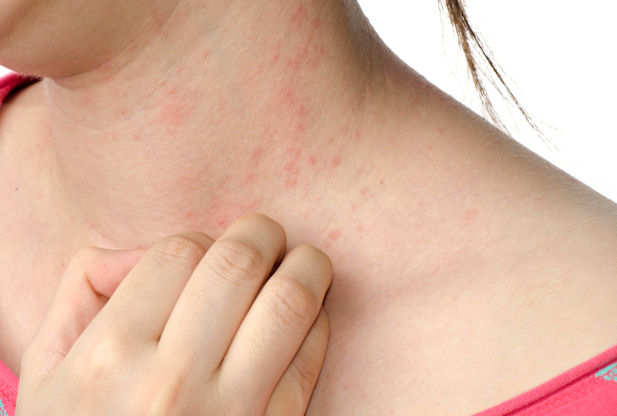The More You Scratch, the Itchier You Get – Beware of Neurodermatitis Amid High Stress, have you ever experienced this scenario: it’s late at night, and you finally lie down to sleep, ready to have a peaceful dream, but you keep tossing and turning, unable to fall asleep no matter what you do? Work, finances, life, academics, and various stressors can lead to anxiety, insomnia, irritability, headaches, stomachaches, and decreased memory capacity.
High levels of stress and anxiety can stimulate the cerebral cortex, creating a vicious cycle of “itch-scratch-more itching-intensified scratching,” contributing to the rising incidence of neurodermatitis-related skin disorders.
Among common neurodermatitis-related skin conditions, the most prevalent is chronic simple lichen simplex.
Chronic Simple Lichen Simplex, colloquially known as neurodermatitis, is a chronic inflammatory skin disease characterized by lichenified skin changes and intense itching, triggered by both neurofunctional disorders and recurrent local skin irritation.
Current research suggests that the development of neurodermatitis is not only linked to abnormalities in the local skin barrier function and local skin dryness but is also clearly related to psychological factors such as stress, anxiety, depression, and mental stress(sources from therapeutique-dermatologique.org).
Neurodermatitis often occurs in areas of the body prone to friction, such as the neck, elbows, sacrococcygeal region, and inner corners of the upper eyelids. In severe cases, it can affect the entire body.
Initially, only itching is present without a rash. After scratching and rubbing, tiny to pea-sized, pale red or skin-colored, flat papules, round or polygonal, appear. These lesions are scattered and gradually increase, merging into typical lichenified plaques, spreading outward with associated pigmentation. The itching is intermittent and more pronounced at night. Many neurodermatitis patients experience recurrent episodes and fall into a vicious cycle: the more they itch, the more they scratch, and the more they scratch, the itchier it becomes.
Treatment:
General Measures
It’s said that the one who tied the bell should untie it. Explain the factors related to the development of this disease to the patients. Avoid excessive fatigue and mental stress. Also, eliminate unhealthy lifestyle habits and avoid using strong irritant medications. Regularly apply moisturizers to keep the skin hydrated. For neurodermatitis, don’t demand a “cure” blindly, but aim for “no recurrence.”
Local Treatment
Use topical corticosteroids for local anti-inflammatory treatment. Select an appropriate strength of topical corticosteroid ointment based on the course, location, and characteristics of the rash. For long-lasting courses, or if the rash is thickened, potent corticosteroids like clobetasol propionate cream or halobetasol cream can be used topically. For the face, short-term courses, and rashes without significant thickening, use mild corticosteroids like desonide cream. For cases in between, use medium-strength corticosteroids like betamethasone valerate cream(quotes from therapeutique-dermatologique.org).
Choose topical anti-itch medications such as doxepin hydrochloride cream.
For lesions with prominent lichenification, consider using keratolytic agents like 5% salicylic acid or 10% salicylic acid ointment.
Systemic Treatment:
If local treatment doesn’t produce clear results or the rash is extensive with severe symptoms, consider using some antiallergic medications. For example, take 10ml of levocetirizine dihydrochloride oral solution or take 25mg of doxepin hydrochloride tablets before bedtime. This can effectively alleviate itching, aid sleep, and break the cycle of scratching.
Whether it’s oral or topical medication, the type, frequency, and duration of use should be scientifically and reasonably selected under the guidance of a doctor. Even after controlling the symptoms on the surface, continued medication may be necessary to maintain and consolidate, preventing a relapse. Medication should not be stopped abruptly.
To truly overcome this condition, prepare for a “long battle.” Be consistent with medication, seek psychological support, improve your lifestyle, and adjust your daily rhythm. Approach the situation with patience to conquer this “enemy.”
